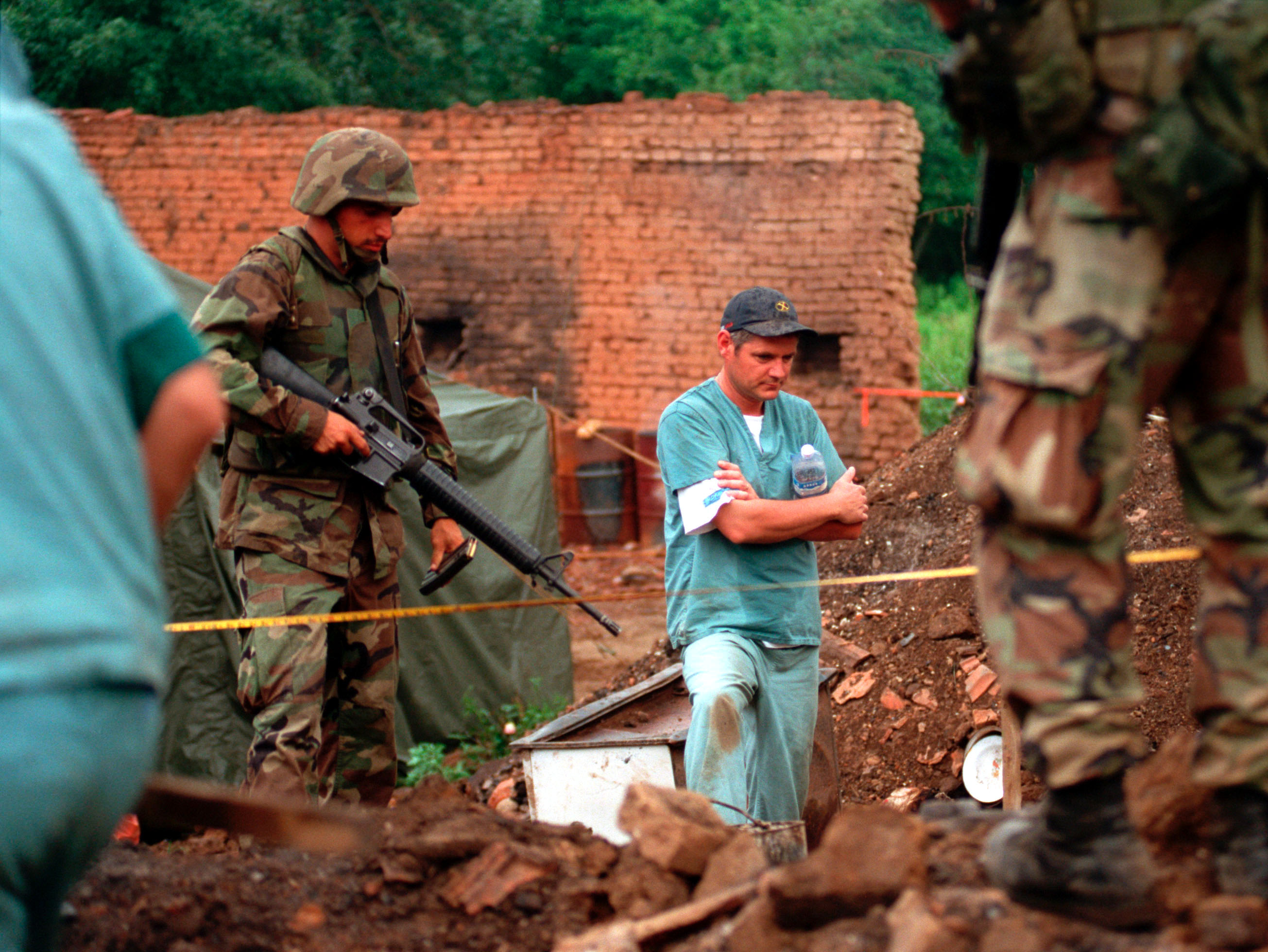|
Izbica Massacre
The Izbica massacre ( sq, Masakra e Izbicës; sr-Latn, Pokolj u Izbici) was one of the largest massacres of the Kosovo War. Following the war, the International Criminal Tribunal for the former Yugoslavia (ICTY) found that the massacre resulted in the deaths of about 93 Kosovo Albanians, mostly male non-combatants between the ages of 60 and 70. Background During the Kosovo War, Izbica was considered safe for Kosovo Albanians from neighboring areas to take refuge, partly because of the Kosovo Liberation Army's presence. By 27 March, thousands of Kosovo Albanians from the Drenica region had gathered in Izbica. Most civilians had come after NATO started bombing, when Yugoslav government forces began to shell the surrounding area. Killings The shelling of the village of Izbica began during the night of 27 March when a group of at least fifty Yugoslav soldiers, policemen and paramilitaries entered the village. They wore both camouflage and dark blue or black uniforms, and carried lo ... [...More Info...] [...Related Items...] OR: [Wikipedia] [Google] [Baidu] |
Izbica, Kosovo
Izbica () is a village in Skenderaj, Kosovo Kosovo ( sq, Kosova or ; sr-Cyrl, Косово ), officially the Republic of Kosovo ( sq, Republika e Kosovës, links=no; sr, Република Косово, Republika Kosovo, links=no), is a partially recognised state in Southeast Euro .... History In March 1999 during the Kosovar war, the village was the site of a massacre of Kosovar Albanian civilians by Yugoslav forces.https://kryeministri.rks-gov.net/en/blog/prime-minister-kurti-paid-tribute-to-the-memorial-in-izbica/ References {{Reflist Villages in Kosovo ... [...More Info...] [...Related Items...] OR: [Wikipedia] [Google] [Baidu] |
War Crimes In The Kosovo War
A series of war crimes were committed during the Kosovo War (early 1998 – 11 June 1999). The forces of the Slobodan Milošević regime committed rape, killed many Albanians, Albanian civilians and expelled them during the war, alongside the widespread destruction of civilian, cultural and religious property. According to the Human Rights Watch, the vast majority of the violations from January 1998 to April 1999 were attributable to Law enforcement in Serbia, Serbian police or the Armed Forces of Serbia and Montenegro, Yugoslav army. Violations also included war crimes committed by the Kosovo Liberation Army (KLA or UÇK), such as kidnappings and summary executions of civilians. In 2014, the Humanitarian Law Center released a list of people killed or gone missing during the war, including 8,661 Kosovo Albanian civilians, 1,797 ethnic Serbs and 447 civilians of other ethnicities such as Romani people and Bosniaks. Background By the 1980s, the Kosovo Albanians constituted a majo ... [...More Info...] [...Related Items...] OR: [Wikipedia] [Google] [Baidu] |
Police Brutality In Europe
The police are a constituted body of persons empowered by a state, with the aim to enforce the law, to ensure the safety, health and possessions of citizens, and to prevent crime and civil disorder. Their lawful powers include arrest and the use of force legitimized by the state via the monopoly on violence. The term is most commonly associated with the police forces of a sovereign state that are authorized to exercise the police power of that state within a defined legal or territorial area of responsibility. Police forces are often defined as being separate from the military and other organizations involved in the defense of the state against foreign aggressors; however, gendarmerie are military units charged with civil policing. Police forces are usually public sector services, funded through taxes. Law enforcement is only part of policing activity. Policing has included an array of activities in different situations, but the predominant ones are concerned with the prese ... [...More Info...] [...Related Items...] OR: [Wikipedia] [Google] [Baidu] |


